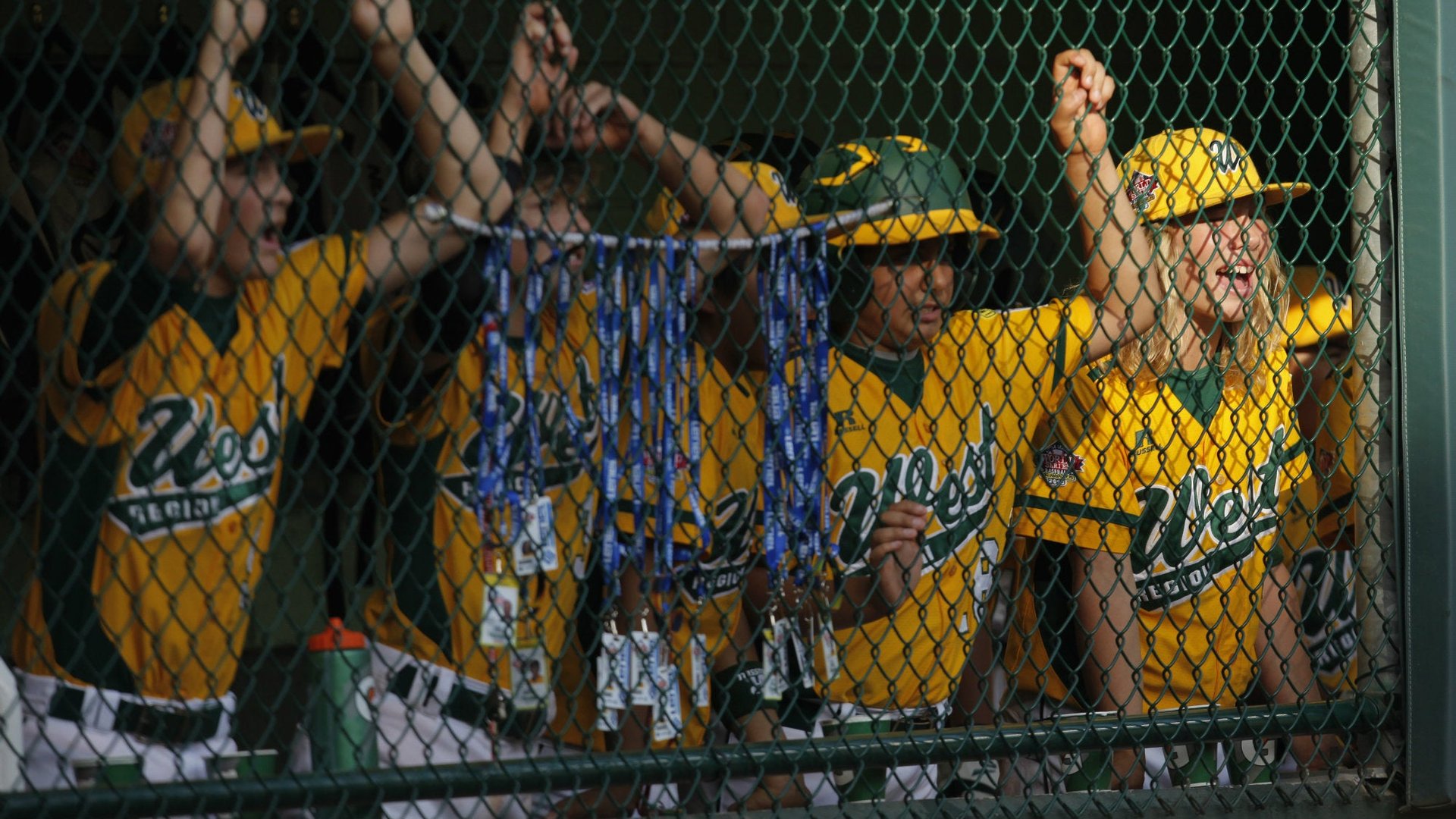This is how long your kids should be spending on extracurricular activities
In many countries September marked the start of the school year and the scramble to balance travel soccer and science tutoring against Brazilian jujitsu and test prep.


In many countries September marked the start of the school year and the scramble to balance travel soccer and science tutoring against Brazilian jujitsu and test prep.
The logistics of managing after-school activities are nothing compared to the mental acrobatics parents perform trying to weigh how much is too much. Some kids thrive on being busy, others need downtime. It can all feel very zero-sum: every organized activity comes at the cost of letting a child’s imagination flourish.
So what’s the magic formula for how much is enough?
Twenty hours, according to a group of professors from Stanford and Villanova who have been collecting data on the issue since 2007.
In “Extracurricular Activity in High-Performing School Contexts: Stress Buster, Booster or Buffer?” Jerusha Conner from Villanova University and Denise Pope and Sarah Miles from the Stanford University Graduate School of Education found that 87% of kids from well-off schools with extracurricular overload were perfectly happy with their packed-to-the-hilt days, unless they were doing more than four hours a day.
“If you do over 20 hours of week of extracurriculars—after-school sports or music—that’s where we started to see some health issues,” Pope told Quartz. Those include more emotional problems, less sleep and higher stress levels than those doing fewer activities. The study is in the process of being peer reviewed and is not publicly available.
There are two main camps of thought on outside activities. One group says that extracurricular activities build new skills, broaden horizons, enable new friendships, minimize screen time and reduce the number of living room-wrestling matches, which never end well. Kids who participate in a lot of activities perform better academically and show fewer signs of depression.
Camp two says that childhood is fleeting, being bored breeds genius, and too many activities can lead to stress, loss of sleep, depression and anxiety.
Pope and her co-authors surveyed 8,838 students attending 16 different high-performing high schools, nine private and six public. The kids spent an average of 9.6 hours Monday to Friday on outside activities, with private-school kids putting in about 20% more time than their public-school counterparts. Almost all of the kids, 87%, reported doing all the extracurriculars because they enjoyed them, not because their parents or college counselors told them to.
The data were self-reported, which means the students might have felt pressure to report that they were happy (or the kids were so over-programmed that four hours a day of activities on top of boatloads of AP courses didn’t feel weird).
But if we take the kids at their word, then academic stress is the problem, not judo and hip-hop. Sixty-nine percent of kids reported being stressed often or always over schoolwork, compared to 28% who felt that way about their outside activities.
Prior research set a lower bar for what was too much. In a 2012 study, JA Fredericks found that when 10th graders did five or more organized activities or spent 14 or more hours on organized activities each week, academics suffered. The study did not look at how it impacted their happiness or physical or mental health. The kids in Fredericks’ sample spent an average of five hours a week on activities; about 3.3% did more than 20 hours a week. Other studies show averages of five to eight hours a week.
Not everyone buys the idea that lots of activity is okay.
Ned Hallowell, a child and adult psychiatrist and author of the Childhood Roots of Adult Happiness, says that when parents over-do it, kids suffer. He sees them in his practice, paralyzed by amorphous, all-encompassing fear. Parents should use common sense when thinking about what activities their kids can handle.
“Some is great, too much is a curse,” he told Quartz, noting that childhood is supposed to be about “discovery, joy, time to dream and wonder, to get into mischief, to fall off your bike, make a friend lose a friend get one back.”
Experts have some tips. David Elkind, author of The Hurried Child: Growing Up Too Fast Too Soon, recommends that kids have the same amount of unstructured time as they have structured time.
Pope, who is also the co-author of the upcoming book Overloaded and Unprepared, has a mnemonic called PDF, which stands for playtime, downtime, and family time. “Kids needs PDF every day,” she said.
Add 10 hours of travel soccer to the PDF, and the kids will (probably) be alright.